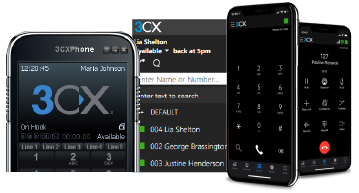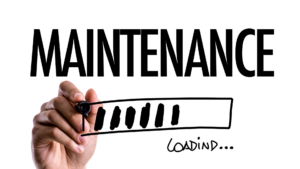VoIP or Voice Over Internet Protocol to give its full name, has revolutionized communication around the world. Powering apps like Skype, Viber, Whatsapp and many others, it’s a technology that enables people to make calls at a fraction of the cost as compared to traditional telephony.
Softphones and deskphones are the two types of telephone devices that you can use for making VoIP calls. But what’s the difference between the two?
Softphones vs Deskphones – What’s Your Best Pick?
What Is a Softphone?
A softphone is a software that enables you to connect to a VoIP network and start calling over the internet. You can install it on your laptop, tablet or smartphone, and they’re quite popular among remote workers.
What Is a Deskphone?
A deskphone is a hardware device, similar to a traditional telephone set, that connects to a VoIP network using Ethernet cables and enables you to make calls over the internet.
Advantages Of Softphones
Here are six benefits softphones offer to you:
Flexibility And Mobility
These apps can be installed on any device, and are available anywhere with an internet connection, which makes them highly preferred by today’s users.
The flexibility of not being restricted to an office space makes it a top option for remote workers.
Scalability
Many businesses have peak seasons with a drastic increase in sales and call traffic. The ability to easily scale up to meet the demands of the business and scale down during off-season is easier with softphones.
It usually involves upgrading to a more suitable subscription at a reduced or no cost at all instead of buying additional hardware.
Easy Deployment
They are extremely easy to install and configure on any device, requiring only a few clicks for the most part, and most service providers have written and video tutorials that help customers with that, so you can get started with your softphone in no time.
Setting up hardware devices can be difficult for the unskilled hand, and that’s why an easy installation process is important.
Cost
VoIP softphones are an affordable VoIP phone system with many providers offering free and freemium pricing models. They also don’t require dedicated hardware so there are little to no upfront investment costs.
Pricing is usually based on the number of users or the type and number of features, producing long-term cost savings for light and heavy VoIP users.
Personalized User Experiences
Softphones offer personalized experiences by giving users the freedom to choose and customize the different features and settings, white-labeled to their personal or corporate look and feel.
Access To a Range of Collaboration Tools
These apps come with a host of collaboration tools in the software which can be used to help remote and on-site employees work together. These tools also facilitate third-party integration with partner apps to provide a better working experience.
Disadvantages Of Softphones
Softphones aren’t suitable for everyone and sometimes, getting a dedicated hardphone will serve your needs better. Here are two negatives of using a softphone:
Poorer Call Quality as Compared to Deskphones
Call quality has improved over the years, but softphones seem to be more vulnerable to common VoIP problems like latency and jitter usually caused by poor wireless connections and producing poor call quality.
Call quality also depends on the provider so if you’re subscribed to a poor service, you can get everything right on your end and still have a poor user experience.
Not Easy to Use
Softphones are generally easier to install but they may require some training to operate especially if they’re complex and unfamiliar features to navigate in the setup.
Advantages Of Deskphones
Here are four benefits deskphones offer to businesses:
Better Call Quality
Deskphones are connected to the internet with dedicated Ethernet cables so there’ll be fewer signal interruptions. This doesn’t mean hardphones never have problems but in a perfect scenario, they provide better call quality when compared to softphones.
Reduced Performance Issues
Laptops and mobile devices can run out of battery, get infected with malware, and just refuse to boot. You skip dealing with all of these by using a deskphone so your calls don’t get ruined because your device can’t load up the software.
Ease Of Use
Another advantage is that deskphones work just like any traditional landline and most people are familiar with them, so there’s usually no training required to operate them. Call management is also easier with these phones as their push-button navigation makes different functions faster.
Reliable
Hardphones tend to have less downtimes due to the presence of a dedicated connection so they’re the dependable phone pick. They run independently, so you don’t have to wait on another device to boot before calling.
Companies and employees can rely on deskphones to navigate and manage privacy breaches because it ensures that work content isn’t shared from personal devices.
Disadvantages Of Deskphones
Deskphones aren’t the best fit for everyone and sometimes, getting software installed will serve your business needs better. Here are two negatives of using a deskphone:
Reduced Mobility
You cannot carry deskphones wherever you go so it won’t be an ideal fit if you work remotely. While cordless hardphones exist and can provide some form of portability, it’s still not an option for talking on the go.
Difficult Scalability
It can be very expensive to install deskphones if you’re trying to scale a business to handle increased call traffic. It affects the time taken to make a decision because if the calls plummet, you’re left with extra hardware you don’t need that’s not improving your profit margins so it’s usually not the perfect fit for a high-growth startup.
Making A Decision: Softphone or Deskphone?
Softphones and deskphones are both VoIP phones with exciting features, there’s no clear winner but your choice should depend on which is the best fit for your business needs and the comparison in this post should help with that.
There’s no rule stating that you can’t use both phones but if you’re looking for a bit more flexibility and the perfect setup for a remote team, softphones are the ideal option for you, and if high quality and simplified call handling are important to you, deskphones are what you need.














